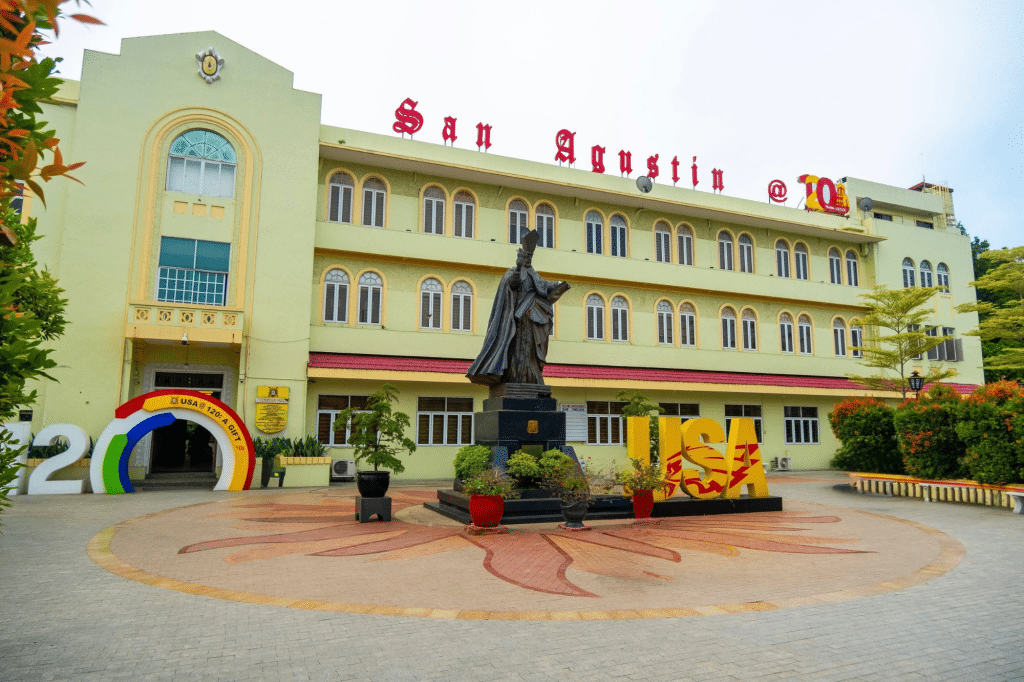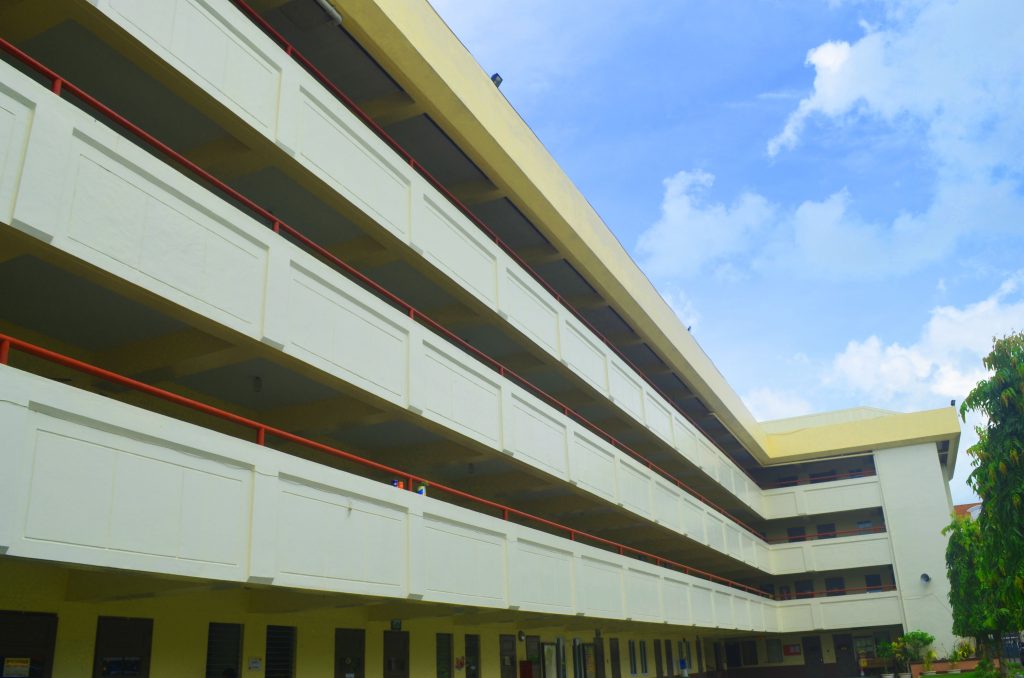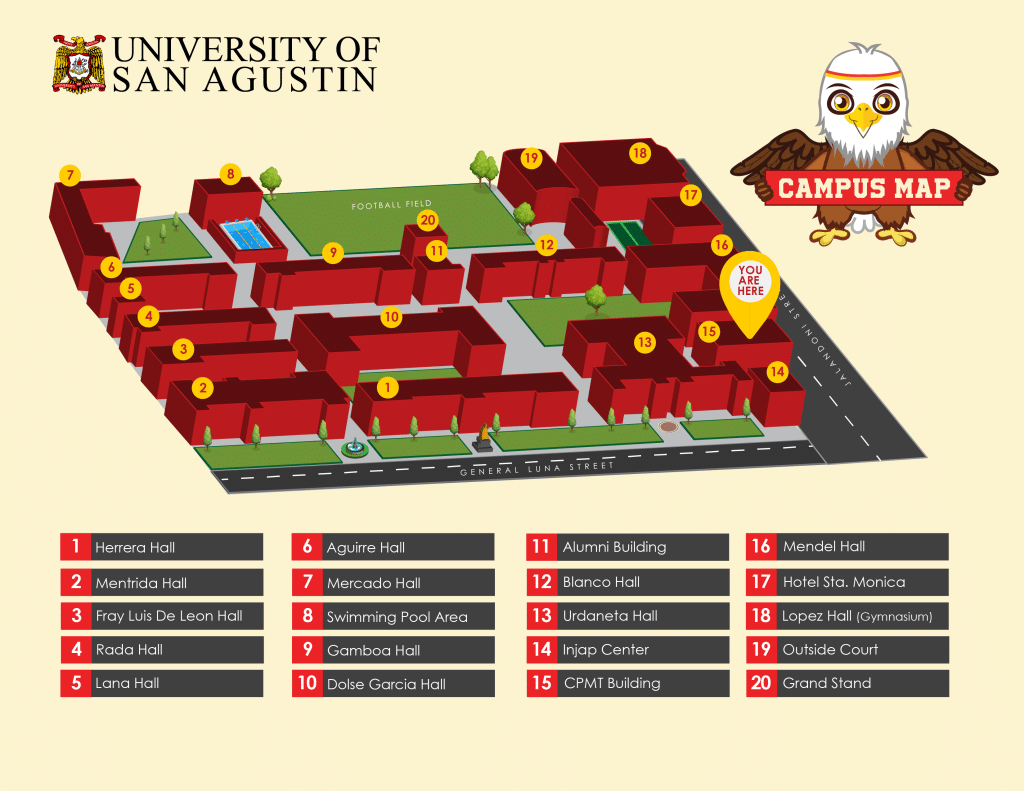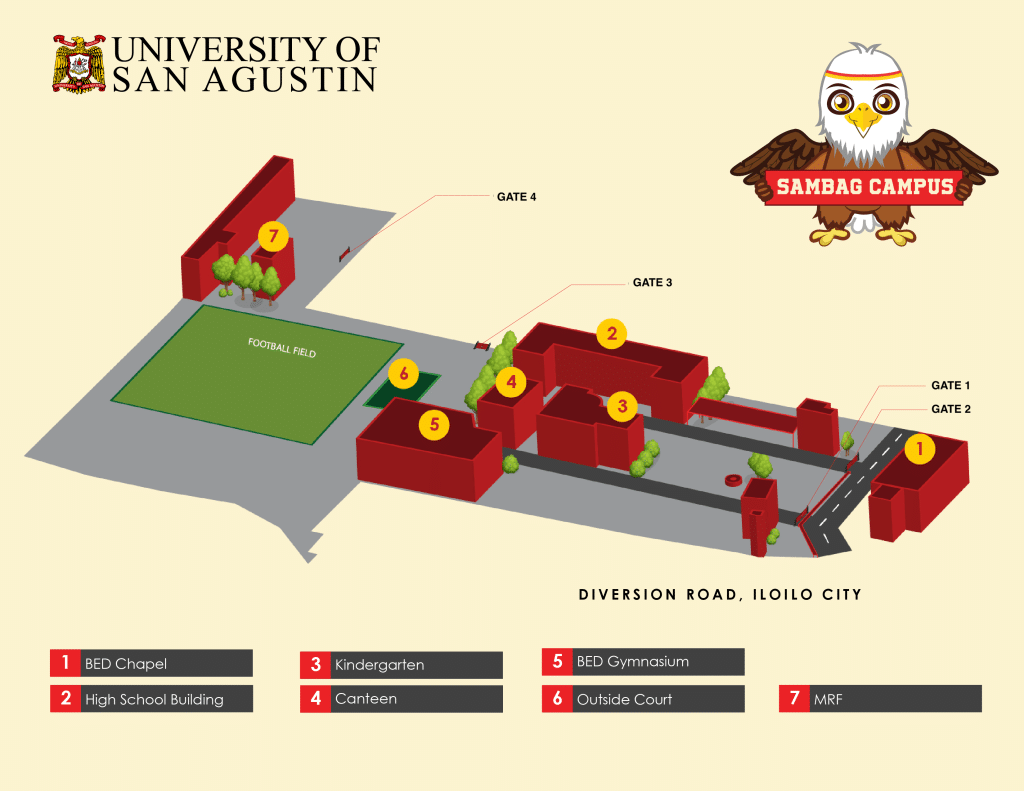ABOUT USa
The University of San Agustin extends its academic offerings from basic education all the way to post-graduate studies. These programs cover various fields such as Law, Business, Education, Computer Studies, Arts and Sciences, Performing Arts, Music, Engineering, Medical Technology, Nursing, and Pharmacy. The university marked its 120-year anniversary as a higher learning establishment during 2024. The institution holds position as a Center of Development in Teacher Education through accreditation from the Commission on Higher Education.
The University of San Agustin is an Augustinian, Catholic, and Filipino educational institution that aims to form the members of its academic community in virtus et scientia to serve Western visayas, the Philippines, and the world.
It is clearly revealed in its mission that the University is committed to:
1. build an academic community imbued with Augustinian values;
2. institutionalize a culture of excellence in teaching, research and extension programs and services compliant to educational standards, and;
3. form an empowered, innovative, responsive and sustainable organization.
A premier academic community of life-long learners working with one mind and one heart to search for, discover and share the Truth (Gaudium de Veritate) for the promotion of authentic human and societal development.
UNITAS (Unity) - Unity is basic for the existence of things. It means “being” one. The power and strength of unity are connected with the becoming of being. Augustine’s thought on unity is not only of the self, but it progresses toward a more social direction which is partnership with other people.
CARITAS (Charity) - Charity embraces both love of God and love of neighbor. It is the greatest of all graces, and it measures the value of persons since we are worth as much as how we love. All our conduct as human beings and as Christians, like work, personal relation, entertainment, etc. must be motivated by love or charity, and must tend to form in us, with God’s grace, that very valuable virtue.
VERITAS (Truth) - Truth is found when the mind reflects on the reality of anything. It is found when the person discovers the realities and values that orient, give sense, and may bring contents to human life. In truth there is community between what a person thinks and what he speaks.
- Transformative community builder oriented towards God
- Restless critical and creative thinker
- Social communicator of the Truth
Augustinian Education is a Christ-centered, learner-centered, life-long process anchored on Augustinian values, which presupposes a holistic vision of the human person. It strives to form individuals by engaging students actively in the learning process and by offering flexible inquiry-based educational programs and support services geared towards the acquisition of necessary knowledge and fundamental Christian moral formation. Graduates are expected to become critical thinkers, lover of truth, agents of transformation, and responsible community builders.
ABOut the university
The University of San Agustin, Iloilo City was founded by the Augustinian friars in 1904 under the inspiration of St. Augustine, Doctor, and Father of the Church. The campus is located at General Luna St, Iloilo City.
Initially, the institution was opened as an elite school for boys known as Colegio de San Agustin on July 12, 1904. The institution evolved from an exclusive school for boys into one leading institution offering a degree in Arts, which later on became a premier learning center of excellent programs in diverse fields, encompassing science and arts, technology, commerce, law, health sciences, theology, and other disciplines, which is in keeping with the Augustinian philosophy of education.
This is emphasized in the words of Fr. Czar Emmanuel V. Alvarez, O.S.A., currently Director of the Institute of Theological Studies of the University, “Education is neither an end in itself but must be rather seen as an instrument that can enable one to be of service to others.”
The growth of the University accelerated after the school was conferred its university status in 1953, making it the first University in Western Visayas. In the succeeding decade, massive investments in infrastructure enabled the University to open new programs and cater to a larger number of students mostly coming from the Western Visayas Region.
In the 1990s, the university became a two-campus university with the acquisition of a site in Sambag, Jaro, Iloilo City. The new campus was developed to house the Basic Education Department, which by that time the student population of the University exceeded 10,000.
In 2004, the Commission on Higher Education granted autonomous status to the University as it embarks on its second century of Augustinian Christian formation. The autonomous status was given to the University of San Agustin in recognition of “its enormous contribution in the growth and prominence of tertiary education in the country and in the Asia Pacific’: With the autonomous status, the University was able to offer new programs and establish campuses without detailed approval from CHED. The University of San Agustin was able to offer extension classes and distance education programs to expand access to higher education and establish an affiliation with recognized foreign higher education institutions.
The first college to open in the University was the College of Liberal Arts (now College of Arts and Sciences) in 1937. It is also the first College to be accredited by PAASCU in this part of the region. Presently the University has nine (9) colleges: The College of Education, which has been certified as Center of Development by the Commission on Higher Education (CHED); the College of Pharmacy and Medical Technology and the College of Nursing, which has been consistent top performers in board examinations; the College of Management and Accountancy; the College of Law recognized as one of the top ten performing law schools the College of Engineering and Architecture which pioneered the offering of Architecture program in the region, and the Conservatory of Music that produced a number of good performing artists in the region and in the whole Philippines.
Instruction, research, and extension converge in publication projects and other advocacy projects of the university. Libro Agustino, the publishing label of the University, has already published 35 books on Western Visayas literature and cultural studies. The USA publishes three research journals (Augustinian, Augustinian Legacy, Scientific Augustinian) in addition to SanAg, the Fray Luis de Leon Creative Writing Institute’s creative writing journal. The Institute holds the annual San Agustin Writer’s Workshop and writing forums. The USA Coordinating Center for Research and Publications (UCRP)serves as a research laboratory that allows USA personnel to concentrate on research work, free from administrative, financial, and clerical concerns. The center works on research education, training, publication, and consultancy.
USA’s extension service center, the Tilipunan (“gathering place”) Center, provides poor families in rural and urban areas in the city and province of Iloilo with basic social services, alternative community education. The Augustinian is pivotal in history and is bound to assert its presence in the region, and eventually, people’s history, forming persons of faith and character who, by their work and example, have chartered the services, and microenterprise development services.
The Augustinians’ one hundred and nineteen years of felt presence has shaped and re-shaped people’s history, forming persons of faith and character who by their work and example have chartered the course of countless other lives, as it continues to serve Panay, Western Visayas, and the world.





